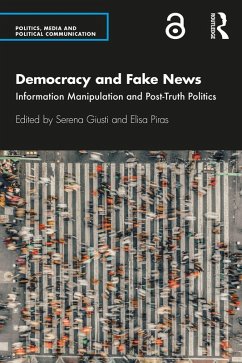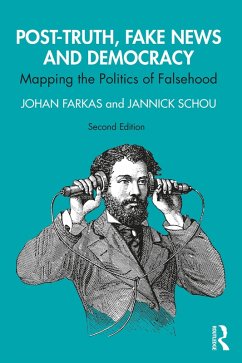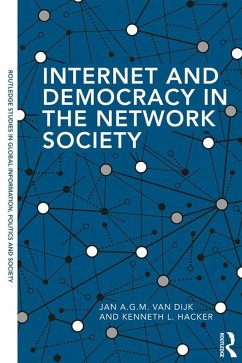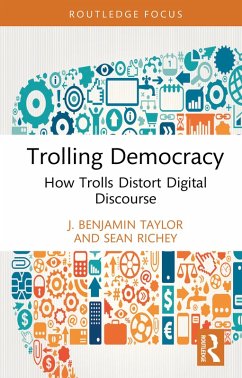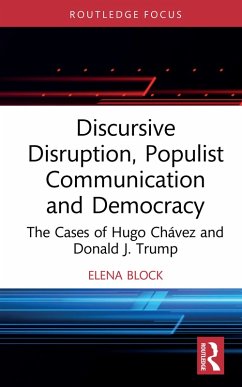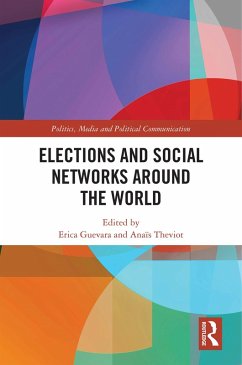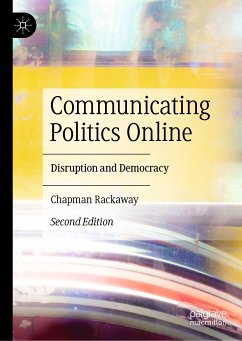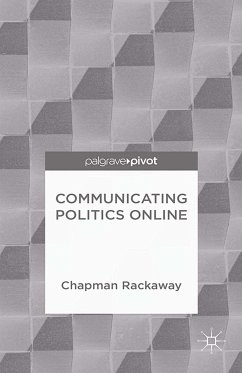
The Routledge Handbook of Political Campaigning (eBook, PDF)
Versandkostenfrei!
Sofort per Download lieferbar
47,95 €
inkl. MwSt.
Weitere Ausgaben:

PAYBACK Punkte
24 °P sammeln!
The Routledge Handbook of Political Campaigning provides an essential, global, and timely overview of current realities, as well as anticipating the trajectory and evolution of campaigning in the coming years.Offering a comprehensive analysis, the handbook is structured into seven thematic sections, including the campaign environment; rhetoric and persuasion; campaign strategies; campaign tactics and platform affordances; news and journalism; citizens and voters; and civil society. The chapters within each section reflect on the latest societal, technological, and cultural developments and the...
The Routledge Handbook of Political Campaigning provides an essential, global, and timely overview of current realities, as well as anticipating the trajectory and evolution of campaigning in the coming years.
Offering a comprehensive analysis, the handbook is structured into seven thematic sections, including the campaign environment; rhetoric and persuasion; campaign strategies; campaign tactics and platform affordances; news and journalism; citizens and voters; and civil society. The chapters within each section reflect on the latest societal, technological, and cultural developments and their impact on campaigning, on democratic culture within societies, and on the roles that campaigns might play in both facilitating and impeding political engagement. Key trends and innovations are examined alongside case studies and examples from a range of nations and political contexts. Issues around trust and representation are further reflected in a focus on the wider campaigning environment and the rise in importance of grassroots and pressure groups, social movements, and movements that coalesce within digital environments.
The Routledge Handbook of Political Campaigning is an essential resource for scholars, students, and practitioners in political communication, media and communication, elections and voting behavior, digital media, journalism, social movements, strategic communication, social media, and more broadly to democracy, sociology, and public policy.
Offering a comprehensive analysis, the handbook is structured into seven thematic sections, including the campaign environment; rhetoric and persuasion; campaign strategies; campaign tactics and platform affordances; news and journalism; citizens and voters; and civil society. The chapters within each section reflect on the latest societal, technological, and cultural developments and their impact on campaigning, on democratic culture within societies, and on the roles that campaigns might play in both facilitating and impeding political engagement. Key trends and innovations are examined alongside case studies and examples from a range of nations and political contexts. Issues around trust and representation are further reflected in a focus on the wider campaigning environment and the rise in importance of grassroots and pressure groups, social movements, and movements that coalesce within digital environments.
The Routledge Handbook of Political Campaigning is an essential resource for scholars, students, and practitioners in political communication, media and communication, elections and voting behavior, digital media, journalism, social movements, strategic communication, social media, and more broadly to democracy, sociology, and public policy.
Dieser Download kann aus rechtlichen Gründen nur mit Rechnungsadresse in A, B, BG, CY, CZ, D, DK, EW, E, FIN, F, GR, HR, H, IRL, I, LT, L, LR, M, NL, PL, P, R, S, SLO, SK ausgeliefert werden.





